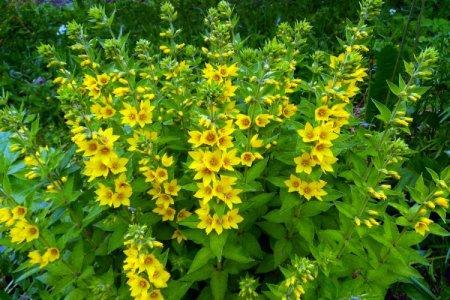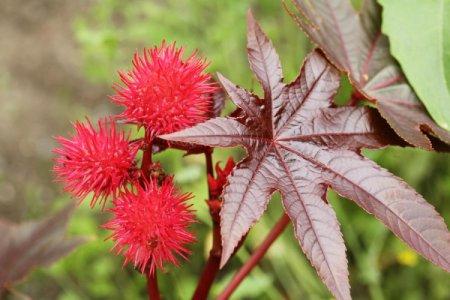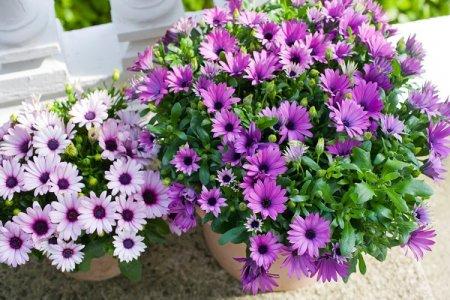
Mattiola is one of the most fragrant and at the same time the most unpretentious plants in the garden. It envelops the entire garden with its unique scent and pleases with lush flowering for a long time. And if you choose the right varieties, taking into account the region, then there is practically no need to care for the flower bed. Interested? Then we'll tell you more!
general information
Mattiola or levkoy will perfectly decorate the summer garden. This is a small dwarf shrub that belongs to the cruciferous. The average height varies from 30 to 80 cm, but there are dwarf varieties and giants.
In nature, there are one-, two- and perennial plants, but in most regions of Russia, mattiola is an annual. The characteristic aroma appears closer to the onset of the evening. The main shades of inflorescences are white, pink, crimson, purple and red.
Shoots of mattiola are straight, branched and covered with long green leaves almost along the entire length. From above, they end in large inflorescences in the form of an ear or brush. Flowers can be simple or double, and the color depends on the variety.
Seeds are collected only from plants with ordinary flowers, but terry seeds are sterile. At the same time, some of the matthiol from these seeds will be common, and some will be terry. And this is all one variety and planting material from one plant. That is why the so-called terry coefficient is often indicated on store bags.

Types of matthiola
In total, there are about 50 species and more than 500 varieties of matthiola. Among them are tall, medium and dwarf, simple and double, and many others. Let's start with the main ones!
Two-horned matthiola
A medium-sized bush of branched stems grows into a rounded ball up to 50 cm tall. Paniculate inflorescences consist of simple fragrant flowers of pink or purple hue.

Pyramidal matthiola
This is a whole group of varieties and subspecies with a characteristic pyramidal bush shape. There are compact dwarf bushes up to 25 cm and the so-called gigantic large-flowered levkoi with flowers up to 5 cm in diameter.

Fragrant matthiola
The most fragrant variety with sessile leaves collected in a dense rosette. Loose inflorescences bloom closer to sunset from May to the end of June.

Single stem matthiola
It is a tall, tall matthiola with straight single stems. It is distinguished by large and voluminous inflorescences of the same large flowers up to 6 cm in diameter. It does not bloom for long, but it is great for cutting.

Gray-haired matthiola
An interesting feature of this species is that its stems quickly lignify. Gray-haired mattiola blooms from June until frost, and it is this group that includes the most bright shades.

Tree matthiola
The shoots of such matthiola branch, but only from above, which makes it resemble a small tree. Small, but dense and double inflorescences consist of large flowers of all kinds of colors.

Matthiola care
Despite its thermophilicity, matthiolae feel great in the garden as an annual. They easily adapt to different conditions and do not cause trouble for gardeners at all.
Temperature
Mattiola grows and blooms best in the warmth, because it's a summer flower for a reason. But hardened seedlings easily tolerate unexpected frosts, and some varieties can withstand up to -7 degrees.

Lighting
Be sure to choose a bright area, because if the mattiola does not have enough light, the flowering will be more scarce. In addition, the aroma is lost, and the stems are ugly stretched.

Watering
In a rainy summer, Matthiola may not be watered at all, but in a drought, watering is required. It is better to do this in two passes: first, soak the soil, and when the first portion of water is absorbed, add the second one closer to the root system.

The soil
Soil is one of the key requirements when planting matthiola.The plant will not bloom in acidic or swampy soils. Sandstones and loams are best suited. Mulching the soil is also not recommended unless absolutely necessary.

Fertilizers and feeding
It is not necessary and impossible to additionally fertilize the soil before planting. We advise you to forget about organic matter altogether, because matthiola does not tolerate it. But mineral fertilizers can be applied up to 8 times a season, evenly distributed over it. Phosphorus and potassium are especially important before flowering.

Weed removal
It is imperative to remove weeds from the site in a timely manner and loosen the soil. This is the prevention of fungus and a guarantee of comfortable conditions for matthiola. But this must be done carefully so as not to touch the area near the stems.

Wintering
In warm regions, matthiola easily tolerates winter and can even bloom. But in the middle lane, they are grown only as annuals. As they wilt, you can remove old bushes so as not to waste nutrients from the soil. Matthiols in containers and flowerpots can be brought indoors for the winter, but they will still lose their decorative effect, so it's easier to grow new ones later.

Planting and breeding
Matthiola is propagated by seeds only. By mid-March, they are sown in a sod soil mixture in containers and germinated in warm and dark conditions. When the first shoots appear, you need to lower the temperature to about 10 degrees and rearrange the containers to the light.
After another 10-14 days, matthiola can be dived, and if the described temperature regime is observed, it can even be immediately taken out into the street. Several batches of seeds are sown at intervals of several weeks to achieve long-lasting, constant flowering.
Early varieties can be sown directly into open ground. But then it takes about 3 months for their full development, and the flower stalks will appear only by the end of summer. Cold-resistant varieties can be planted in furrows at the end of winter and covered with sand or snow. Seedlings will appear in the second half of spring.
The root system of matthiola is not too deep, so deep planting holes are not needed. You can even do without a thick drainage layer. For group plantings, it is most convenient to dig trenches. The optimum distance between the bushes is from 15 to 40 cm, depending on the size of the variety.

Pests and diseases of matthiola
Matthiola must be regularly examined for various lesions. In addition, they cannot be planted with cruciferous plants or fed with organic matter. This significantly increases the risk of fungal diseases.
The most dangerous disease for matthiola is keela cruciferous, which is transmitted by spores through the soil. It is better to remove all affected plants, treat the soil and not plant anything on it for a while.
On dry days, planting matthiola is threatened by cruciferous fleas, which eat up the leaves. Dusting the leaves and soil with ordinary ash helps from them, which will then be washed away by the rain. Butterflies also like to feast on the plant, but here you can no longer do without insecticides.

Mattiola - photo
The volumetric inflorescences of matthiola are very diverse, but at the same time very effective. In a container, in a flower bed, in multi-level compositions or in a cut - it is good everywhere!


























